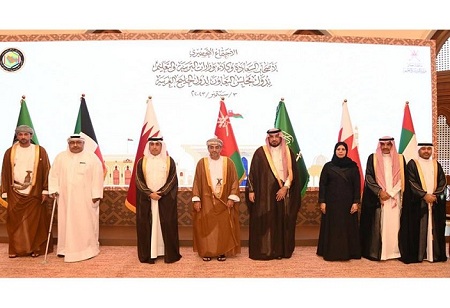The GCC under-secretaries of higher education and research met in Muscat to prepare for the 23rd meeting of the committee of GCC ministers of higher education and research. Dr Bakhait bin Ahmed bin Suhail al Mahri, Under-Secretary of the Ministry of Higher Education, Research and Innovation for Higher Education, presided over the meeting. The under-secretaries addressed the execution of resolutions reached at the GCC Supreme Council's 43rd session regarding the overall framework of studies and cooperative research of importance to sustainable development in GCC nations. The under-secretaries discussed the projects of the Committee of GCC Ministers of Higher Education and Research in connection to enhancing joint Gulf action and monitoring the execution of the committee's strategic plan (2022-2026) and the most noteworthy initiatives during the meeting.
They also discussed many shared subjects that benefit GCC states' collaborative scientific collaboration. UNDER-SECRETARIES OF THE GCC EDICATION REVIEW SUPREME COUNCIL DIRECTIVES. Meanwhile, GCC Under-secretaries of Education met in Muscat to prepare for the 7th meeting of the Committee of GCC Ministers of Education. Dr Abdullah bin Khamis Ambusaidi, Under-Secretary of the Ministry of Education for Education, presided over the meeting. The under-secretaries addressed GCC Supreme Council and Ministerial Council instructions, including as digital transformation, rejecting terrorism and extremism, promoting international cooperation, status of all GCC institutions, organisations, and offices under the umbrella of the Secretariat, in addition to protecting moral, religious, and family values in the Gulf societies.
The under-secretaries also discussed the Committee of Ministers of Education's action plan for the years 2021-2026, as well as collaboration in reaching the fourth aim of the United Nations Sustainable Development Goals (quality education). They also addressed the Sultanate of Oman's proposal and the Secretariat's General proposal for on-the-job training. The seminar finished with a discussion of the Fourth Industrial Revolution's implications on education. The meeting produced a set of recommendations, including the formation of a technical work team from the ministries of education in the GCC countries to develop a unified vision of international cooperation and mechanisms in the field of education, as well as the holding of periodic workshops in member states for specialists from all sectors concerned with continuing learning during crises, and benefiting from evidence and training portfolios previously completed by the Arab Bureau of Education for the Gulf States (ABEGS) on education highlighting Islamic values and citizenship (intellectual fortification, community participation, family education, and media culture.

